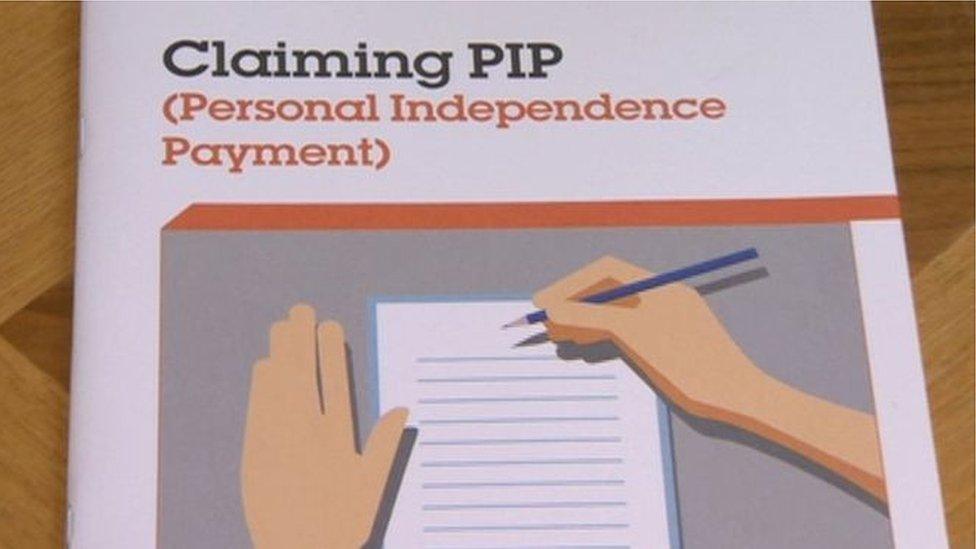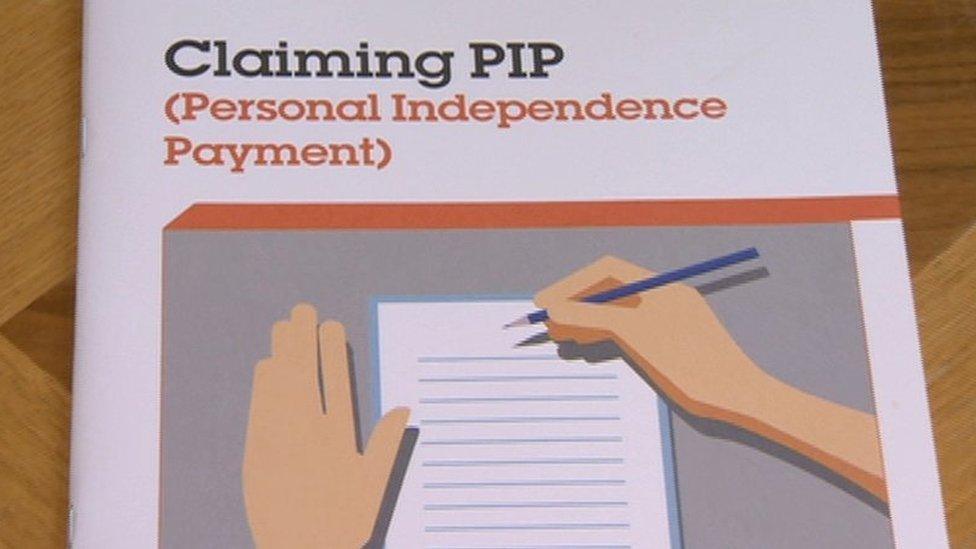Personal Independence Payments: One in five not transferred to new benefit
- Published

One in five people who received Disability Living Allowance (DLA) in Northern Ireland are no longer eligible for disability benefit.
More than 100,000 people of working age have been reassessed since Personal Independence Payments (PIP) replaced DLA in June 2016.
But that doesn't mean the system is saving money.
Almost 40% of claimants transferred to PIP have had the amount they receive in benefits increased.
New PIP claimant Laura Mason, a student at St Mary's College in Belfast, said she found the system very straightforward.
"I was born with Erbs Palsy which means I have two degenerative discs in my neck," she said.
"My mum thought I might be eligible for PIP so we filled in the form and then a lady came to my house for the assessment. She was lovely and it was all calm and easy."
Laura uses the money to pay for physiotherapy to help her condition as she has limited mobility in her shoulder and is often in pain.
But Declan McCullough, from Lisburn, had a very different experience.
He has Crohn's disease and arthritis.
He was receiving DLA, but after his reassessment his benefits were withdrawn.
"I was down for a home visit but then they took it away and said I needed a doctor's letter," he said.
Two very different stories of applying for disability benefit
How does he manage without the benefits?
"I'm depressed all the time, I've been self-harming," he said.
Capita carries out the reassessments on behalf of the Department for Communities. That process has been controversial in Northern Ireland and Great Britain.
Capita's figures show a high rate of satisfaction amongst those who have been awarded the new benefit.
Capita chief medical officer Ian Gargan said: "As a doctor I don't want anyone going through any stress, mental or physical, over the reassessment process.
"I hope and I feel that we are doing our best. We definitely learn and we consistently learn but if people are unhappy we want to hear from them.
"We have quite a robust complaints process."
Dr Gargan said those who carry out reassessments are trained medical professionals.
"They don't lose all their soft skills as soon as they leave the wards of the hospitals they worked in, they're very empathetic and humanistic," he said.
Kevin Higgins, from Advice NI, said it is now harder to get disability payments than it was before, meaning many people have lost out.
'Daunted'
"From an advice sector perspective, it has been the one big thing that has driven demand over the last four years," he said.
"People feel very daunted by the assessment and with the high proportion in this part of the world of people on DLA who had mental health issues it's easy to imagine how difficult it was."
Mr Higgins believes the welfare state and the safety net it should provide is not what it was.
"In terms of the benefits system, it certainly isn't as tight as it used to be," he said.
The reassessment process is now complete although there are still hundreds of appeals being heard through the tribunal system.
The Department for Communities insisted the system was robust and disability benefits were now better targeted at those who need it most.
Advice NI can be contacted on 0808 802 0020.
- Published12 January 2019

- Published24 June 2019
